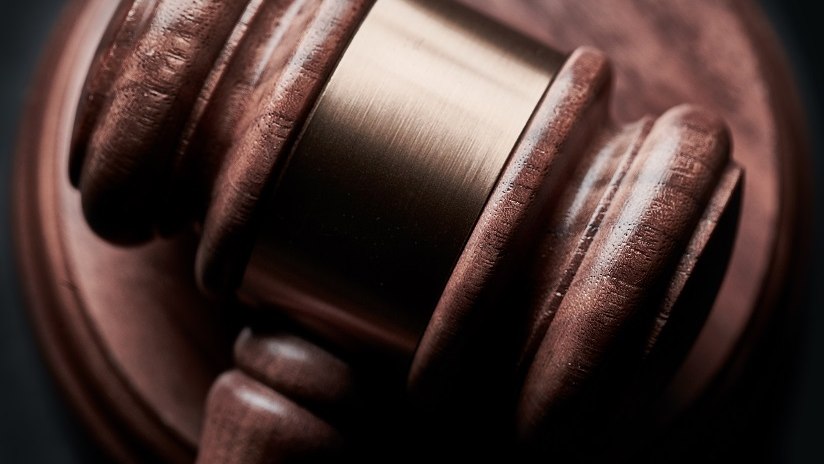
By Shira Moolten
South Florida Sun-Sentinel
BROWARD COUNTY, Fla. — Over sixteen years ago, Maury Hernandez was shot in the head while conducting a traffic stop on a man who was supposed to be in jail.
This year’s legislative session will mark the former Broward Sheriff’s deputy’s fourth attempt to receive $10 million in lost wages and medical bills from the state of Florida, and his supporters believe that he will succeed.
“I really believe this is going to be the year,” said Matt Cowart, the BSO union president, who spoke on Hernandez’s behalf Saturday. “I can feel it from the dialogue with the legislature. I know we’re going to right this wrong after 16 years.”
Though it’s often described as a miracle that Hernandez survived the shooting that day in 2007, his past efforts to receive compensation from the government have proved less miraculous.
Hernandez has permanent brain damage and is partially paralyzed, but his insurance provider stopped paying for his medical treatments, according to Cowart. His workers’ compensation provider has filed a $1 million lien against him. And though Hernandez filed a lawsuit against the Department of Corrections after a BSO investigation found that the department was at fault, a judge decided that he could not receive the compensation he requested due to sovereign immunity.
“It feels like you’re being betrayed,” Hernandez said in an interview with the Orlando Sentinel last April. “Other government agencies are supposed to be in your corner, not against you.”
Hernandez’ past attempts to get a claim bill through the legislature failed because of a legal technicality, Cowart said. Last session, he tried to file a regular claim bill, but that kind of bill requires a previous legal judgment or settlement to go before a special master, who then passes it on to committee.
A spokesperson for Senate President Kathleen Passidomo said at the time that the bill “does not meet the requirements for evaluation by a special master because there was no legal finding of negligence for the special master to evaluate, nor a settlement or proposed settlement to consider.”
This year, Hernandez is filing an equitable claim bill, which seeks to receive “legislative grace.” Cowart described it as compensation that originates more out of a moral, rather than legal, obligation.
These types of claim bills are rare, but Hernandez’s supporters are optimistic. Cowart and Hernandez have met with legislators across Broward and the rest of the state, from both sides of the aisle. They just returned from spending three days in Tallahassee.
State Rep. Alex Rizo, the bill’s sponsor in the House, said that the union, IUPA, has “brought this issue, I believe, before every single member of the House.”
The bill hinges on the argument that Hernandez should never have been shot, had the state Department of Corrections done its job. Hernandez, 28 at the time, was on his way to investigate a robbery when he saw the shooter, David Maldonado, run a stop sign on a motorcycle in Pembroke Park.
When Hernandez pulled him over, Maldonado falsely identified himself as a police officer, then pushed him and ran away. During a foot chase, he turned around and shot at Hernandez twice. One of the bullets struck him in the head.
Maldonado was on probation at this time, and told his rookie probation officer that he was allowed to carry a gun because he was an armed security guard, Cowart said. He was not.
The Miramar man was later found guilty of attempted murder.
The BSO investigation found that the Department of Corrections had notified the state attorney’s office of repeated violations of Maldonado’s probation that should have put him in jail when Hernandez pulled him over that day.
“If the DOC, if that person who’s a parole officer made that mistake and this is a result of that mistake, then it should be an act of legislative grace that we say ‘that’s fine,’” Rizzo said.
Added to the fact that Maldonado should have been in jail is the fact that he should not have had a gun when Hernandez pulled him over.
Lance Block, Hernandez’s attorney of the last 16 years, said he would have rather gone the regular claim bill route, but “equitable remedies have passed in Florida before. And this is one that really calls out for justice.”
“The wrongful act by DOC here is so egregious that it really can’t be ignored,” he added. “This is more than just simple negligence.”
Hernandez was in a coma for three weeks after the shooting. Now, the entire left side of his body has muscle weakness and nerve damage. He still has bullet fragments lodged in his head, where a shunt is implanted to drain fluid from his brain.
The 44-year-old is “burnt out” after his time in Tallahassee, said Cowart. Despite difficulty walking, Block said, Hernandez refuses to use a wheelchair when he’s going around the Capitol. But eventually he might need one, on top of other medical devices and treatments.
“The state should step in here and say this is a special case,” Rizzo said. “In which we should say, let’s go ahead and let’s pass this claim and let’s allow him to live without the burden, the financial burden that was never something he went out and looked for himself. Instead he just went out and tried to protect us.”
Information from the Orlando Sentinel was used in this report.
—
©2023 South Florida Sun-Sentinel.
Visit sun-sentinel.com.
Distributed by Tribune Content Agency, LLC.


